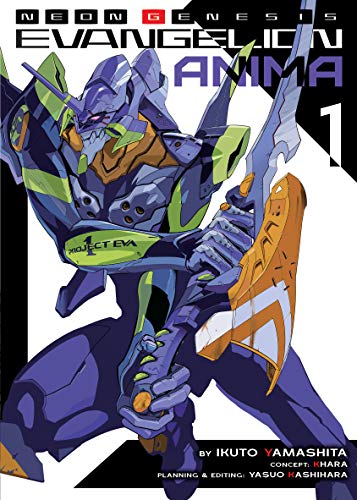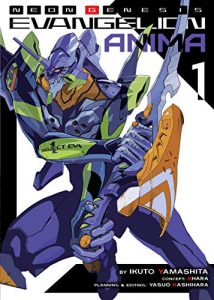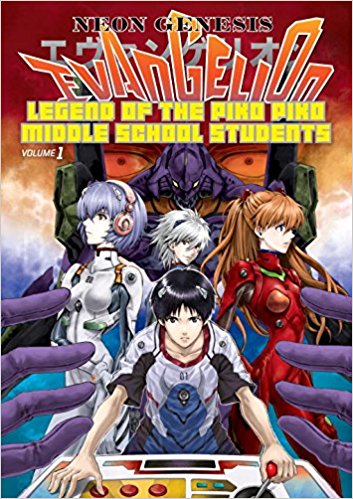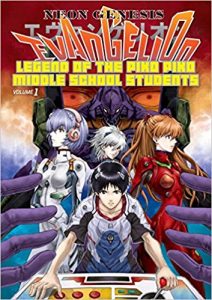By Ikuto Yamashita. Released in Japan as “Shin Seiki Evangelion Anima” by Kadokawa Shoten, serialized in the magazine Dengeki Hobby. Released in North America by Seven Seas. Translated by Nathan Collins. Adapted by Peter Adrian Behravesh.
It occurred to me as I was reading this second volume, and glancing at most of the color pages, that this was written to be serialized in Dengeki Hobby, a (now defunct) magazine devoted to fans of the plastic model kit. It therefore should come as no surprise to me that the book is a lot more concerned with the Evas and how they function than the inner workings of the actual cast. There are some moments where that’s not the case – Misato’s grief at Kaji’s fate here is well handled, as is her quick recovery, and Shinji’s raging grief in his attack near the end also rings true. But as I watched everything get worse and worse and worse, it occurred to me that the problem with this continuing on from the end of the original TV series is that there’s no way to back up and get much of what the start of the TV series had – fun. It’s a very interesting continuation, but it lacks joy.
Of course, there are very good reasons why fun is in short supply. This is an apocalypse narrative, continuing straight on from the first book, and there’s simply no time to settle down and have a penguin raiding your fridge. Shinji and Super Eva (I will never get used to that name) are trying to fight against a mind-controlled Hikari and her German Evangelion; Misato and Toji are trying to hold down the fort back at base, despite her getting kidnapped midway and his worrying about Hikari; the Reis are all dealing with the death of Cinq in various healthy and unhealthy ways, and Quatre is still a very troubled soul; Kaji stops Kensuke from putting on a possessed mask and losing his identity by… doing it first (yeah, I dunno either); we get the fabulous and somewhat bonkers adventures of Asuka… ON THE MOOOOOON!; and there are far, far more people turned into pillars of salt, to the point where you will get sick of the phrase.
Of these subplots, Asuka had my favorite, showing off a lot of smarts, gumption, and pure survival tactics. Despite this, she loses most of her hair and almost her existence; it takes Hikari and Shinji calling out to her to give her an identity again, and even then she’s… well, let’s leave that as a spoiler. Shinji, aside from his RAGE near the end, does not really get time to do much soul-searching as he’s constantly on the run and fighting; at one point he has Maya in his cockpit, and later on Rei Trois, but this Shinji is made of sterner stuff. Of course, he may have a few issues continuing on after the events in this book as well. And there is a LOT of apocalypse imagery – in addition to the pillars of salt, there’s ancient animals coming back to life and killing people, natural disasters killing people, the Lance of Longinus killing people… if you’re a resident of Earth in this book and aren’t part of the main cast, it doesn’t look good for you.
As I said, this book is quite interesting, and I do want to see what happens next – especially as they’re running out of disasters and we have three more books to go. But, as someone who never really cared about the giant robot battles in Evangelion, it can be a bit of a slog.




